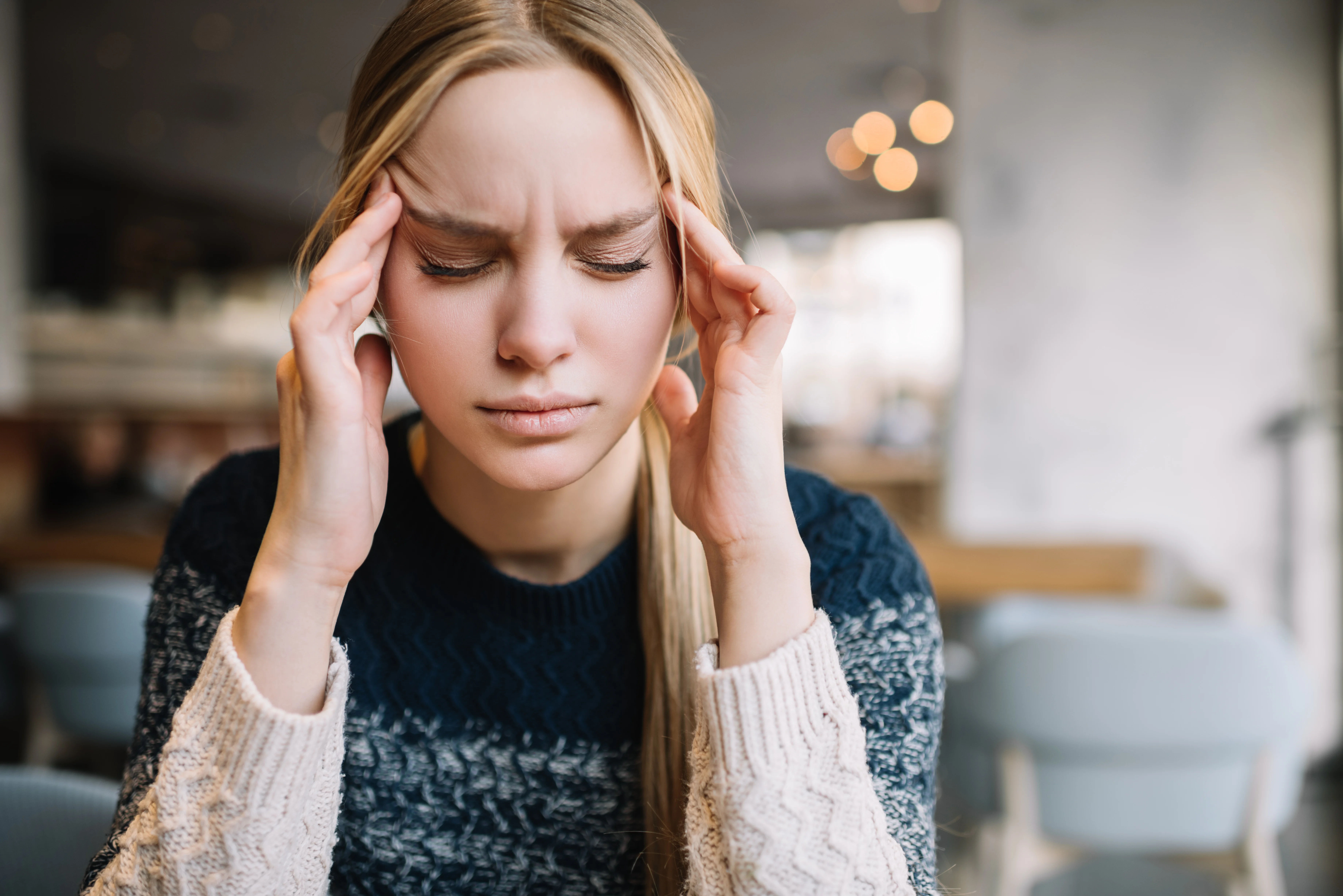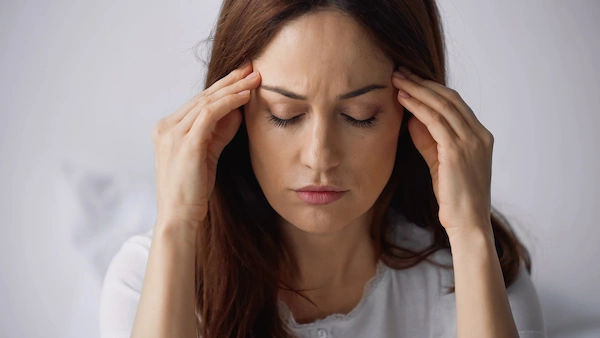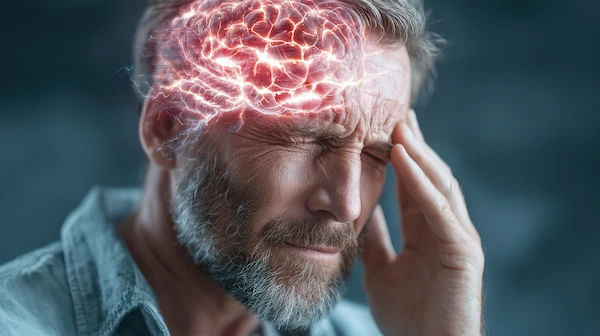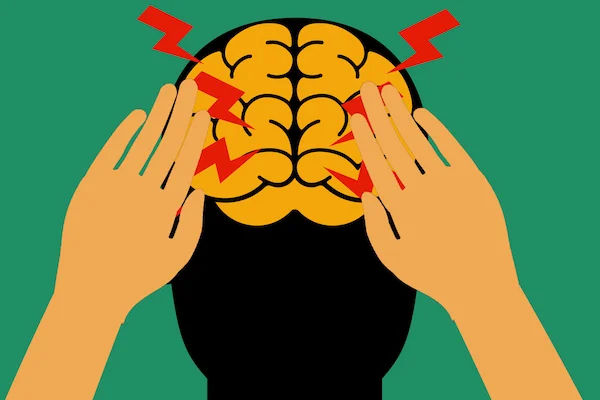Guide to Migraine Vs Headache
Don't know if it's a headache or a migraine? Learn the key differences in symptoms, pain location, and duration. Find out how to get the right diagnosis and effective treatment for your specific condition.

Written by Dr. M L Ezhilarasan
Reviewed by Dr. Dhankecha Mayank Dineshbhai MBBS
Last updated on 13th Jan, 2026

Migraine vs Headache: How to Tell the Difference and Find Relief
We’ve all experienced it: that familiar, unwelcome pressure or pain in your head that throws a wrench in your day. It’s easy to call every instance a "headache," but not all head pain is created equal. Understanding the difference between a common headache and a migraine is the first and most crucial step toward finding effective relief. While a headache can be a nuisance, a migraine is a complex neurological disorder often accompanied by debilitating symptoms. This guide will demystify these conditions, providing you with a clear, side-by-side comparison of their symptoms, causes, and treatments. You'll learn how to identify your own head pain, discover common triggers, and know exactly when it's time to seek professional help from a doctor. Let's dive in and untangle the confusing world of head pain, so you can take back control of your wellbeing.
What is a Headache? Understanding the Common Ache
In medical terms, a headache (cephalgia) is defined as pain in any region of the head. The pain can be sharp, dull, constant, or throbbing, and it can develop gradually or suddenly. Headaches are broadly categorized into two main groups: primary and secondary.
Primary Headaches: The Main Event
- Primary headaches are standalone illnesses caused by overactivity of or problems with pain sensitive structures in the head. They are not a symptom of an underlying disease. The most common types are tension type and cluster headaches.
TensionType Headache: The Most Common Culprit
- This is the typical everyday headache that won't go away. It often feels like a tight band of pressure around your forehead or at the back of your head and neck. The pain is usually mild to moderate, doesn't throb, and isn't typically worsened by physical activity. Stress, poor posture, skipped meals, and eye strain are frequent triggers for this type of head pain.
Cluster Headache: The "Suicide Headache"
- Far less common but extremely painful, cluster headaches occur in cyclical patterns or "clusters." They cause severe, burning, or piercing pain behind or around one eye. The pain is so intense that it’s often called the "suicide headache." Attacks can last from 15 minutes to three hours and often occur at the same time of day, frequently waking people from sleep.
Secondary Headaches: A Symptom of Something Else
Secondary headaches are a symptom of an underlying health condition, such as:
- Sinus infection (causing headache behind eyes and in the forehead)
- Dehydration
- Caffeine withdrawal
- High blood pressure
In rare cases, more serious issues like a brain tumor or aneurysm (which is why understanding "when to see a doctor" is vital).
Consult a General Physician for the best advice
What is a Migraine? A Neurological Disorder
A migraine is far more than just a bad headache; it is a disabling neurological disease with a distinct set of symptoms. Migraine attacks involve altered brain chemistry and nerve pathways and are often genetic. They are characterized by a moderate to severe throbbing or pulsating pain, usually on one side of the head (headache on one side of head is a classic sign).
The Four Phases of a Migraine Attack
A migraine can unfold over several days, progressing through up to four stages, though not everyone experiences all of them.
Prodrome: The Warning Signs
- This phase occurs hours or even days before the headache. Subtle changes like mood swings, food cravings, neck stiffness, frequent yawning, and constipation can signal an impending attack.
Aura: Sensory Disturbances
- About 25% of people with migraines experience aura. These are usually visual disturbances like seeing flashing lights, zigzag lines, or blind spots. Aura can also include tingling in the face or hands, speech difficulties, and other sensory changes. It typically lasts 2060 minutes.
Headache: The Attack Phase
- The pain phase can last from 4 to 72 hours. The throbbing pain is often accompanied by nausea, vomiting, and extreme sensitivity to light (photophobia) and sound (phonophobia). Movement often makes the pain worse, leading many to seek a dark, quiet room to lie down.
Postdrome: The "Migraine Hangover"
- After the main attack, people often feel drained, confused, and washed out for up to a day. This is often described as feeling like a "migraine hangover."
Migraine vs Headache: A SidebySide Comparison
So, how to tell if it's a migraine or a standard headache? This comparison chart highlights the key differences.
The presence of associated symptoms like nausea and light sensitivity is one of the strongest indicators that you are dealing with a migraine and not just a bad tension headache.
When to See a Doctor?: Red Flags and Concerns
While most headaches are benign, certain "red flag" symptoms warrant immediate medical attention. Consult a doctor if your headache:
- It is sudden and severe ("thunderclap" headache).
- Is accompanied by fever, stiff neck, confusion, seizures, double vision, or weakness/numbness.
- Begins after a head injury.
- Worsens significantly over days and changes in pattern.
If symptoms persist beyond two weeks or are a new type of pain for you over the age of 50, consult a doctor online with Apollo 24|7 for further evaluation. They can help determine if your symptoms point to a primary headache disorder or a secondary cause that needs investigation.
Conclusion: Empowering Yourself Through Knowledge
Understanding the critical differences between a migraine and a common headache empowers you to be an active participant in your health. You can move from simply enduring pain to effectively managing it. By learning to identify your unique symptoms and triggers, you can take proactive steps to reduce the frequency and intensity of your attacks. Remember, while over-the-counter solutions can manage occasional tension headaches, the debilitating nature of migraines often requires a more nuanced approach, including lifestyle changes and prescription strategies developed with a healthcare professional. If your head pain is disrupting your life, don't dismiss it. Your journey to relief starts with a proper diagnosis. If your condition does not improve after trying these methods, book a physical visit to a doctor with Apollo24|7 to create a personalized treatment plan and reclaim your days from pain.
Consult a General Physician
Consult a General Physician

Dr Syed Mateen Pasha
General Physician
2 Years • MBBS
Bengaluru
PRESTIGE SHANTHINIKETAN - SOCIETY CLINIC, Bengaluru

Dr. Vivek D
General Physician
4 Years • MBBS
Bengaluru
PRESTIGE SHANTHINIKETAN - SOCIETY CLINIC, Bengaluru

Dr. Anand Ravi
General Physician
2 Years • MBBS
Bengaluru
PRESTIGE SHANTHINIKETAN - SOCIETY CLINIC, Bengaluru

Dr. Shubham Chauhan
General Practitioner
4 Years • MBBS
Lucknow
Apollo 24|7 Clinic - Uttar Pradesh, Lucknow

Dr. Harshendra Jaiswal
General Physician/ Internal Medicine Specialist
12 Years • MBBS , MD (General medicine)
Kolkata
108 DHANA DHANVANTARI Clinic, Kolkata
(25+ Patients)
Consult a General Physician for the best advice

Dr Syed Mateen Pasha
General Physician
2 Years • MBBS
Bengaluru
PRESTIGE SHANTHINIKETAN - SOCIETY CLINIC, Bengaluru

Dr. Vivek D
General Physician
4 Years • MBBS
Bengaluru
PRESTIGE SHANTHINIKETAN - SOCIETY CLINIC, Bengaluru

Dr. Anand Ravi
General Physician
2 Years • MBBS
Bengaluru
PRESTIGE SHANTHINIKETAN - SOCIETY CLINIC, Bengaluru

Dr. Shubham Chauhan
General Practitioner
4 Years • MBBS
Lucknow
Apollo 24|7 Clinic - Uttar Pradesh, Lucknow

Dr. Harshendra Jaiswal
General Physician/ Internal Medicine Specialist
12 Years • MBBS , MD (General medicine)
Kolkata
108 DHANA DHANVANTARI Clinic, Kolkata
(25+ Patients)
More articles from Migraine
Frequently Asked Questions
What does a migraine feel like compared to a sinus headache?
A true sinus headache is rare and is caused by a sinus infection, featuring pain and pressure in the cheeks, forehead, and bridge of the nose, often with thick nasal discharge. A migraine is frequently misdiagnosed as a sinus headache because it can cause similar facial pressure. The key difference is that migraines will also have neurological symptoms like nausea, light sensitivity, and throbbing pain.
Can a lack of caffeine cause a migraine?
Yes, caffeine withdrawal is a very common trigger for both headaches and migraines. If you regularly consume caffeine and suddenly stop, it can cause a pronounced, throbbing headache that can develop into a full migraine attack for those who are susceptible.
What are some natural remedies for migraine relief?
Many people find relief with natural remedies for migraine such as applying a cold compress to the head or neck, resting in a dark, quiet room, practicing mindfulness or meditation, staying hydrated, and using essential oils like peppermint. Magnesium supplements have also shown some evidence in prevention.
How long is too long for a headache to last?
A typical tension headache should subside within a few hours. A migraine can last up to 72 hours. Any headache that persists for more than a few days, or a pattern of recurring headaches over two weeks, should be evaluated by a doctor to rule out underlying causes.
Are there specific best medicines for migraine attacks?
Yes. While ONSAIDs like ibuprofen can help mild attacks, specific prescription drugs called triptans (e.g., sumatriptan) are designed to abort a migraine by constricting blood vessels and blocking pain pathways. Newer classes of drugs, like CGRP inhibitors, are also available for both prevention and treatment.




